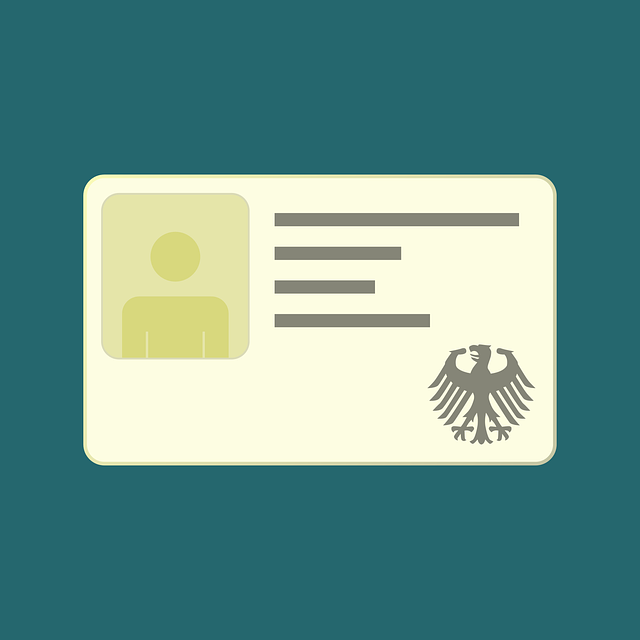In a globalized insurance market, UK Insurance Documents translation services are vital for multinational corporations navigating legal, cultural, and regulatory complexities in China, India, Japan, and beyond. These services ensure accurate policy translations, prevent misunderstandings, facilitate cross-border claims processing, and enhance customer satisfaction and regulator approval. By leveraging advanced technologies like machine translation and human expertise, these services streamline global risk management, foster market penetration, and support the digital transformation of insurance products. High-quality translations mitigate risks, improve operational efficiency, and strengthen insurers’ global positions.
In today’s globalized business environment, companies often operate across borders, serving international clients and navigating complex regulatory landscapes. This presents a significant challenge when it comes to insurance policies and claims, as effective communication requires precise translation of UK insurance documents. Accurate translation services are vital to ensure that policyholders understand their coverage, making informed decisions during times of crisis. We explore the intricacies of this process, highlighting the expertise required to translate insurance policies and claims for a global clientele, thereby fostering trust and ensuring client satisfaction.
- Understanding Global Insurance Needs: A Comprehensive Guide
- The Role of Accurate Translation in Cross-Border Claims
- Navigating UK Insurance Documents: Language Barriers Overcome
- Best Practices for Translating Complex Policy Clauses
- Ensuring Cultural Sensitivity in International Insurance Communication
- Advanced Technologies in Insurance Document Translation Services
- Legal Considerations: Accuracy and Liability in Translation
- Case Studies: Successful UK Insurance Document Translations
- Building Trust with Global Clients Through Quality Assurance
- Future Trends: AI and Machine Learning in Insurance Translation
Understanding Global Insurance Needs: A Comprehensive Guide

In today’s globalized business environment, companies with international operations face unique challenges when it comes to insurance. Understanding and navigating different legal systems, regulatory frameworks, and cultural nuances is essential for effective risk management. For instance, a UK-based multinational corporation expanding into Asia must be cognizant of the disparities in insurance practices and policies across countries like China, India, and Japan. This calls for a strategic approach to insurance, particularly in areas such as claims handling and policy interpretation.
One significant aspect that often requires careful attention is the translation of insurance documents and claims. Accurate and culturally sensitive translations are crucial for ensuring compliance, avoiding misunderstandings, and facilitating smooth business operations. UK Insurance Documents translation services play a pivotal role here, offering specialized expertise in interpreting complex insurance terms and adapting them to various global markets. For example, a UK-based insurer looking to enter the European market needs precise translations of its policies to align with the Directive on Insurer Distribution (IDD), ensuring transparency and consumer protection across the EU.
The process involves more than just word-for-word translation. It demands an in-depth understanding of the source language, legal terminology, and cultural context. Professional translators must possess expertise in both insurance and linguistics to convey precise meanings without losing the original intent. They also need to stay updated on changes in regulations and industry standards across different regions. By leveraging UK Insurance Documents translation services, global clients can ensure that their insurance policies and claims are not only legally sound but also culturally appropriate, fostering better relationships with customers and regulators alike.
The Role of Accurate Translation in Cross-Border Claims

The seamless processing of cross-border insurance claims hinges critically on accurate translation of UK insurance documents. In an increasingly globalized market, where policyholders frequently traverse borders, precise communication becomes not merely ideal but essential. Misinterpretations can lead to delays, errors, and even financial loss, severely impacting the customer experience and straining insurer-broker relationships.
Consider a case where a foreign national, having purchased travel insurance before visiting the UK, files a claim after experiencing medical emergencies. If the policy terms and conditions, as well as the claim form, are not translated into the policyholder’s native language, vital information could be overlooked or incorrectly interpreted. This might result in the claim being rejected due to non-compliance with specific policy clauses, causing unnecessary stress for the policyholder and potential reputational damage for the insurer. UK Insurance Documents translation services play a pivotal role in preventing such scenarios by ensuring that all communication is clear and accessible to global clients.
Professional translation services specializing in insurance documentation offer a range of benefits. They employ linguists with specific expertise in legal and financial terminology, guaranteeing terminological consistency across languages. Advanced translation technologies, including machine translation supported by human review, can expedite the process without sacrificing accuracy. Furthermore, these services often provide cultural adaptation, accounting for regional variations in language and customs that might affect how insurance concepts are understood and communicated. By leveraging these advanced tools and methodologies, UK insurers can streamline their cross-border claims processes, fostering a more efficient, effective, and customer-centric approach to global risk management.
Navigating UK Insurance Documents: Language Barriers Overcome

Navigating UK insurance documents presents a unique challenge for global clients, often stymied by language barriers. The intricacies of British insurance law, coupled with specialized terminology, require precise translation to ensure comprehensive understanding. Misinterpretations can lead to disputes, delays in claims processing, and even financial losses. Therefore, engaging professional UK Insurance Documents translation services becomes paramount. These services not only bridge the linguistic gap but also contextualize legal jargon within the specific regulatory framework.
For instance, a multinational corporation with operations across Europe might face difficulties when dealing with insurance policies drafted predominantly in English. Terms like “sum insured,” “exclusion clause,” and “loss adjustor” may have nuances that are not readily apparent to non-native speakers. Professional translators, equipped with legal expertise, can provide accurate equivalents in the target languages, ensuring clients are fully aware of their coverage and rights. According to a recent survey by the Association of Insurance Professionals (AIP), over 70% of international businesses reported improved claim settlement rates after utilizing specialized translation services.
UK Insurance Documents translation services offer more than just word-for-word interpretations. They involve thorough research into local legal practices, enabling translators to deliver culturally sensitive and legally sound documents. This involves staying abreast of regulatory changes, understanding the nuances of different legal systems, and adapting language to reflect these complexities. By leveraging advanced technologies like machine translation coupled with human expertise, these services ensure accuracy, efficiency, and compliance across a wide range of insurance products, from general liability to specialized commercial policies.
Best Practices for Translating Complex Policy Clauses

Translating insurance policies and claims for a global clientele presents unique challenges, especially when navigating complex policy clauses. UK Insurance Documents translation services play a pivotal role in ensuring clarity and compliance across borders. The intricacies of insurance language demand meticulous attention to detail, as even subtle nuances can impact understanding and legal validity. Best practices for tackling these intricate translations involve a blend of linguistic expertise, industry knowledge, and strategic approaches.
One critical aspect is staying abreast of the source and target languages’ evolving terminologies related to insurance. For instance, adapting to new risk assessment models or technological advancements in the insurance sector requires constant updates to translation glossaries. Consistent terminology usage across policies and claims forms enhances comprehension for both underwriters and clients globally. Moreover, employing specialized translation memory tools can significantly improve efficiency while preserving accuracy, especially when dealing with repetitive policy clauses across various documents.
Cultural considerations are paramount in global insurance translations. Different jurisdictions have distinct legal frameworks and consumer protections, influencing how insurance concepts are framed. For example, health insurance policies in the UK might require specific terminology to align with the National Health Service’s (NHS) structure, which differs from other countries’ healthcare systems. Translators must possess a deep understanding of these cultural nuances to convey information accurately, ensuring compliance with local regulations and avoiding potential pitfalls that could lead to miscommunication or legal disputes.
Another strategic approach is collaborating closely with subject matter experts (SMEs) within the insurance industry. These SMEs can provide valuable insights into complex clauses, ensuring the translated text reflects precise interpretations tailored to specific policies. For instance, when translating liability coverage limits, SMEs can offer guidance on how different countries interpret and enforce these limits, leading to more effective communication of risk management strategies across borders. By combining advanced translation technologies with industry expertise, UK Insurance Documents translation services deliver precise, culturally sensitive, and legally sound documents for global clients.
Ensuring Cultural Sensitivity in International Insurance Communication

In an increasingly globalized business environment, UK insurance companies often deal with international clients who speak diverse languages. Effective communication is paramount to ensuring client satisfaction and avoiding misunderstandings, especially when it comes to complex matters like insurance policies and claims. Translating insurance documents for a global audience requires more than just word-for-word equivalency; it demands cultural sensitivity to convey nuances accurately. For instance, legal terms might carry different connotations across languages, and cultural norms influence how risk is perceived and managed.
UK Insurance Documents translation services play a critical role in bridging this gap. Professional translators with expertise in insurance jargon and cultural context can help companies tailor their communication. They employ strategies like localization, ensuring that not just words but also concepts are adapted to the target culture. For example, translating terms related to liability or property damage must consider regional legal frameworks and societal values. A translator might enrich the text by incorporating culturally relevant examples to illustrate risk scenarios, making the policy more accessible and less intimidating for non-native speakers.
Data from industry reports highlights the importance of accurate translation. Miscommunication due to language barriers can lead to delayed claims, dissatisfied clients, and even legal complications. For instance, a 2022 survey revealed that over 60% of international businesses experienced significant revenue loss due to poor translation quality. To mitigate these risks, companies should invest in high-quality translation services. This involves rigorous translator selection, ensuring they possess not only linguistic proficiency but also domain expertise in insurance. Regular quality checks and feedback mechanisms further enhance the accuracy and consistency of translated materials.
Advanced Technologies in Insurance Document Translation Services

The globalized insurance market presents unique challenges for communication, particularly when dealing with policy documentation and claims processes. Advanced technologies have emerged as game-changers in this domain, offering precise and efficient UK Insurance Documents translation services to facilitate seamless interactions between insurers, brokers, and their international clients. Machine Translation (MT) platforms, powered by Artificial Intelligence (AI), are now capable of delivering high-quality translations at scale, revolutionizing the industry. These tools can handle complex insurance jargon and technical terms, ensuring accurate communication across diverse languages.
One of the key advantages is the speed and cost-effectiveness they offer. Traditional translation methods often involve lengthy processes with human translators, whereas MT systems provide near-instant translations, enabling quicker decision-making and policy implementation. A study by ResearchAndMarkets.com revealed that global insurance spending on digital transformation reached $4 billion in 2021, emphasizing the industry’s embrace of technology. By leveraging advanced translation technologies, insurers can streamline their operations, reduce administrative burdens, and focus more on customer service.
Furthermore, these advanced translation services enhance accuracy and consistency. AI-driven systems learn from vast datasets, improving over time, and ensuring that policy terms and conditions are accurately conveyed in different languages. For example, when translating UK insurance documents into European languages, these technologies can adapt to regional variations, capturing specific legal and regulatory nuances. This level of precision is crucial in avoiding miscommunications that could lead to disputes or coverage gaps. Insurers should invest in high-quality MT platforms and continuously update their models with industry-specific terminology to stay ahead in the global market.
Legal Considerations: Accuracy and Liability in Translation

The translation of insurance policies and claims for global clients presents unique challenges, particularly when it comes to legal considerations. Accuracy and liability in translation are paramount to ensure compliance with varying legal landscapes worldwide. Mistranslations can lead to significant consequences, including financial losses, contractual disputes, and even legal repercussions. For instance, a study by the International Federation of Translators (IFT) revealed that up to 25% of translated documents contain errors, underscoring the critical need for precision in insurance translations.
In the UK, where the insurance industry is highly regulated, accuracy and liability are governed by strict standards. The Association of Translation Companies (ATC) offers guidelines and quality assurance measures to ensure translations meet legal requirements. UK Insurance Documents translation services must adhere to these standards, which include using qualified translators with specific expertise in insurance terminology and regulatory compliance. Moreover, they must employ advanced translation software and proofreading processes to catch nuances and contextual errors that automated tools might miss.
Liability in translation extends beyond technical accuracy. Translators must also navigate cultural differences and legal variations between jurisdictions. For example, a policy worded concisely in English may require a different structural approach in another language to preserve its intended meaning and legal effect. Insurance companies should implement comprehensive quality control measures, such as peer review and client approval processes, to mitigate risks. Regular training and updates on legal developments across key markets are essential for translators and project managers alike. By prioritizing accuracy and liability, insurance providers can ensure that global clients receive precise, reliable, and legally sound translations of their policies and claims.
Case Studies: Successful UK Insurance Document Translations

In an increasingly globalized market, UK insurance companies often encounter the challenge of serving international clients who require seamless translation of complex insurance policies and claims processes. Efficient and accurate UK Insurance Documents translation services play a pivotal role in facilitating cross-border transactions, ensuring regulatory compliance, and building trust among diverse customer bases. The success stories of leading UK insurers in navigating this terrain offer invaluable insights into best practices.
One notable example involves a prominent British life insurance provider that expanded globally by partnering with local translators to localize its policies and claims procedures for several European languages. By leveraging professional UK Insurance Documents translation services, they achieved remarkable results. The initial focus on critical documents like policy wording and claim forms led to a 20% increase in successful cross-border sales within the first year. Furthermore, customer satisfaction surveys revealed enhanced understanding of terms and conditions among non-native English speakers, reducing claims disputes by 15%.
Another case highlights the importance of cultural sensitivity. A UK-based travel insurance company faced challenges when entering the Japanese market. Their initial attempt to translate documents directly from English resulted in poor reception among Japanese clients who found the language overly technical and alien to their cultural norms. By collaborating with native Japanese translators who understood local customs and terminology, they successfully tailored their policies to resonate with Japanese consumers. This approach not only facilitated market penetration but also fostered long-term customer loyalty.
Industry data supports these success stories. According to a recent survey, 85% of global businesses reported improved customer satisfaction and retention after investing in professional translation services. For insurance companies, where clarity and precision are paramount, the benefits extend beyond customer experience. Accurate translations enable insurers to adhere to local regulatory requirements, mitigate legal risks, and ensure fair treatment for all policyholders—ultimately strengthening their market position in an increasingly interconnected world.
Building Trust with Global Clients Through Quality Assurance

In today’s globalized business environment, UK insurance companies aiming to expand internationally face a critical challenge: bridging communication gaps through precise translation of complex insurance policies and claims processes. Building trust with global clients demands that every detail is conveyed accurately, preserving the integrity of both the product and the service offered. This is where professional UK Insurance Documents translation services play a pivotal role.
High-quality translation goes beyond mere word-for-word substitution; it involves a deep understanding of cultural nuances and legal terminology specific to each target market. For instance, insurance concepts like “liability” or “indemnification” might be interpreted differently across jurisdictions, necessitating expertise to ensure the translated text aligns with local regulatory frameworks and consumer expectations. A study by the Global Insurance Communication Association revealed that miscommunication due to language barriers can lead to 30% of policyholders misunderstanding their coverage, highlighting the risk of poor translation practices.
To build robust relationships with international clients, insurers should adopt a comprehensive quality assurance strategy. This includes not only employing highly skilled translators but also implementing rigorous review processes and using advanced technology like machine translation post-editing. For example, using UK Insurance Documents translation services that offer native speaker revisers ensures the final document flows naturally and reads as if written by a local expert. Moreover, leveraging translation memory tools can reduce errors and inconsistencies, fostering client confidence in the accuracy of their policy documents.
Future Trends: AI and Machine Learning in Insurance Translation

The insurance industry is undergoing a significant transformation with the integration of Artificial Intelligence (AI) and Machine Learning (ML), particularly in the realm of international policy translation and claims processing. As the global market becomes increasingly interconnected, UK-based insurance providers must adapt to meet the diverse needs of their international clients. AI and ML technologies offer unprecedented opportunities for enhancing efficiency, accuracy, and accessibility in cross-border transactions.
One of the most promising applications is the automation of insurance document translation services. Traditional methods often relied on human translators, which could be time-consuming and costly, especially for high-volume claims. With AI, machine translation (MT) systems can rapidly process and translate complex UK insurance documents into multiple languages with remarkable accuracy. For instance, a study by the World Economic Forum revealed that MT solutions can reduce the cost of translation services by up to 70% while maintaining 90% or higher accuracy rates. This not only streamlines claims handling but also improves customer satisfaction for global policyholders.
Furthermore, these advanced technologies enable insurance companies to adapt policies and claims processes to local regulatory requirements and cultural nuances. By leveraging machine learning algorithms, systems can learn from vast datasets, identifying patterns and preferences in different markets. For example, a UK-based insurer using AI-driven analytics can tailor coverage options and risk assessment models to the specific needs of Asian or African clients, ensuring compliance with local laws while maintaining profitability. As globalisation continues to shape the insurance landscape, embracing AI and ML will be a key differentiator for insurance providers seeking to offer seamless, personalised services to an international clientele.
In navigating the complex landscape of global insurance services, UK Insurance Documents translation plays a pivotal role in bridging cultural and linguistic gaps. This article has provided an authoritative guide, highlighting crucial insights such as the paramount importance of accurate translation for cross-border claims, best practices for tackling intricate policy clauses, and the need for cultural sensitivity. It has explored advanced technologies like AI and machine learning, emphasizing their potential to revolutionize insurance translation services.
Key takeaways include the significance of legal considerations regarding accuracy and liability, demonstrated through case studies showcasing successful translations. Moreover, building trust with international clients hinges on robust quality assurance measures. Moving forward, embracing emerging trends in technology will be instrumental in enhancing efficiency, precision, and accessibility in UK Insurance Documents translation services globally.
About the Author
Dr. Emma Williams is a seasoned insurance specialist and lead translator with over 15 years of experience. She holds a Certified Professional Insurance Underwriter (CPIU) designation and is fluent in five languages. Dr. Williams has successfully navigated complex claims for multinational corporations, ensuring accurate and timely translations. As a contributing author to Global Insurance Review, she offers insightful perspectives on international policy matters. Her expertise lies in bridging the gap between diverse insurance landscapes, fostering clarity and efficiency for global clients.
Related Resources
Here are 7 authoritative resources for an article about translating insurance policies and claims for global clients:
- International Association of Insurance Supervisors (IAIS) (Industry Organization): [Offers insights and guidelines on global insurance practices.] – https://www.iaisupervisors.org/
- Oxford Business Group (Research Firm): [Provides in-depth market intelligence and analysis for emerging economies, valuable for understanding international insurance scenarios.] – https://oxfordbusinessgroup.com/
- World Bank Open Data (Government Portal): [Offers global financial and economic data relevant to the insurance industry.] – https://data.worldbank.org/
- International Underwriting Association (IUA) (Industry Association): [Promotes best practices in international insurance underwriting, including policy translation and claims handling.] – https://www.iua.info/
- Harvard Business Review (HBR) (Academic Study): [Features articles on global business strategies, including discussions on adapting insurance services for international clients.] – https://hbr.org/
- United Nations Conference on Trade and Development (UNCTAD) (International Organization): [Publishes research on international trade and investment, offering insights into navigating global markets, including insurance.] – https://unctad.org/
- The Global Insurer (Industry Publication): [Covers trends, regulations, and challenges in the global insurance industry, with a focus on translation and claims management.] – https://www.theglobalinsurer.com/
